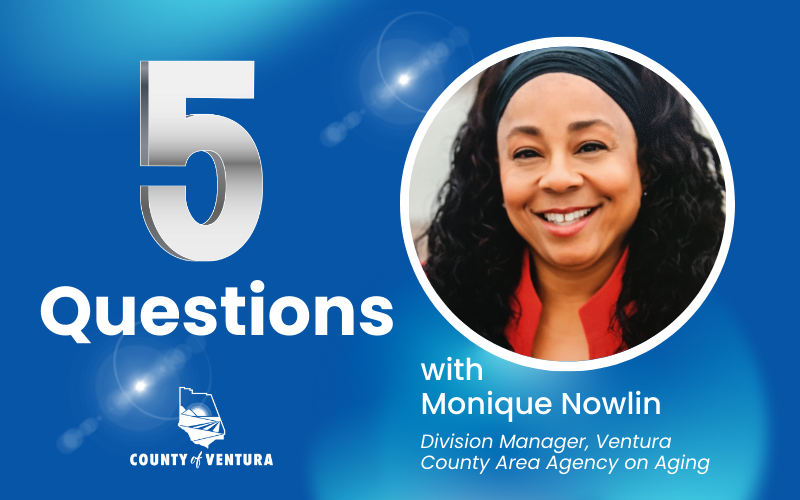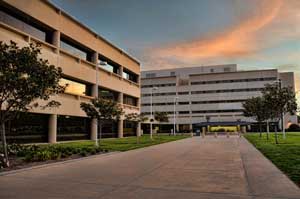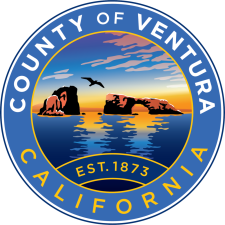Can you share a brief overview of the Ventura County Area Agency on Aging (VCAAA) and its mission to support older adults and caregivers in our community?
VCAAA, a division of the Human Services Agency, provides supportive services to older adults, people with disabilities and their caregivers. We do that with a myriad of programs and a multi-disciplinary team of social workers, nurses, registered dietitians, and administrators. Our overarching mission is to support people’s ability to age with maximum independence and dignity.
What are some of the key programs and services VCAAA offers to help older adults?
Some of our key programs, all of which are free, are our Health Insurance Counseling & Advocacy Program (HICAP), which assists with Medicare counseling, our Senior Nutrition Program, which funds meals for older adults around the county, and our case management programs, which use a person-centered approach in providing services to older adults.
I would also like to highlight the fact that VCAAA has a Family Caregiver Resource Program, La Buena Vida, that supports those who are taking care of older adults and people with disabilities in our community. The program offers caregiving training and support groups and helps caregivers mitigate burnout.
Are there any new initiatives or goals for VCAAA in 2025 that residents should know about?
Our focus in 2025 is to make sure that we are providing for and prioritizing our core-mandated programs, which could include nutrition services, enhanced information and assistance, legal services, caregiver services & supports, care or case management and transportation. We are making strategic decisions that will allow VCAAA to continue meeting the needs of older adults, people with disabilities and their caregivers in Ventura County. As VCAAA continues to integrate with the Human Services Agency, we are streamlining and reimagining how services can be offered to continue providing quality programs for the population we proudly serve.
How can community members get involved in supporting VCAAA’s efforts, whether through volunteering, donations, or advocacy?
VCAAA has many opportunities for volunteering, donating and/or advocacy. If one is interested in volunteering, we always need help with the Fall Prevention and HICAP (Health Insurance Counseling & Advocacy) programs. Volunteers working in the Fall Prevention program teach VCAAA’s evidence-based classes. Volunteers that serve as HICAP counselors assist people with their Medicare questions and Medicare open enrollment. Volunteering with VCAAA is a way to give back to the community and to learn information to help yourself and your family.
If one is interested in advocacy or learning more about VCAAA’s efforts, we have an Advisory Council that meets every other month. Meetings are open to the public. This group of volunteers represents different cities, supervisorial districts, and specific populations, such as veterans. The Advisory Council helps VCAAA keep its finger on the pulse point of what each community needs. I like to say that it’s not us telling the public what they need, it’s the public telling us what they need, through the Advisory Council members. We then determine the most effective strategies to best fulfill the need.
If one is interested in donating or raising funds for the VCAAA, they can contact the VCAAA Foundation. The VCAAA Foundation is a separate, non-profit entity dedicated to supporting additional needs experienced by older adults, people with disabilities and their caregivers. The Foundation is also volunteer-led and seeks volunteers to serve on its board.
What advice would you give to older adults or caregivers who may not know about the services available to them or how to access them?
My advice is to reach out to us at VCAAA. There is a lot of information on our website (VCAAA.org) and we have an informative resource guide, LIVEWell, that is printed in both English and Spanish. One can also give us a call (805-477-7300). Anyone calling does not need to know exactly what help they are looking for. Our bilingual and bi-cultural social workers are trained to work with the public to connect them to the resources and services they need. If we do not have those services at VCAAA, we are going to connect them with another agency that can assist them.
VCAAA staff also attend community events to increase access to our services. We average more than 20 outreach events a month, countywide. It is important that we meet older adults, people with disabilities and their caregivers where they are. So if you need help, or if you are trying to help a loved one, do not hesitate to connect with us!








